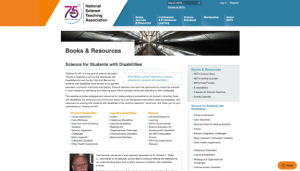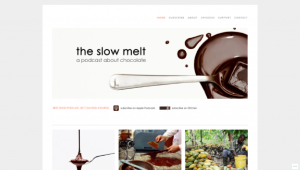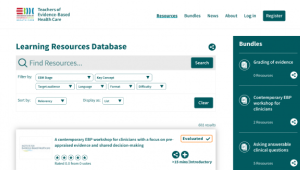General Interest
Back to Top
|
 |
|
Beautiful News Daily
|
Science |
|
Many of us strive to stay well-informed of local and international events, but sometimes the news can be stressful or discouraging. To help counterbalance this, the data visualization website Information is Beautiful recently embarked on a new project, Beautiful News Daily. As its name implies, this project offers its visitors "a collection of good news, positive trends, uplifting statistics and facts -- all beautifully visualized," in colorful charts and graphics. New graphics are posted each day over the course of the project's one-year lifespan, which aims "to move our attention beyond dramatic news headlines to the slow developments and quiet trends that go unseen, uncelebrated." Readers can browse all of the Beautiful News items on the project's main page, and they can also filter them by category. Each item's page includes a brief summary, and below readers will find links to view the data in spreadsheet form and to see the source that inspired the chart, as well as a link to a relevant organization for those who would like to get involved. All of the images created for Beautiful New Daily are covered by a Creative Commons license and can be used and shared freely. Information is Beautiful was founded by David McCandless, a London-based writer, designer, and artist. [JDC] |
|





|
|
 |
|
Brightly
|
Language Arts |
|
Parents, caregivers, and educators looking to foster a love of reading in young people may want to check out Brightly. Launched in 2015, Brightly aims to provide resources to help adults "raise kids who love to read," and also "to keep kids connected to books through every age and stage of life." Visitors have several options for exploring the site's content beyond the most recent articles on its main page. Under Ages & Stages, visitors can begin by selecting the age group that best fits their audience, where they can then peruse Brightly's "book picks, reading tips, and activities," for that age group. Visitors can also browse Brightly by Popular Topics, which includes numerous lists of book recommendations along with categories such as Educator Resources; DIY and Family Activities; Parenting and Advice; and Science and STEM. While Brightly focuses primarily on books for younger readers, it also brings adults along for the ride with a monthly roundup of the Best Grown-Up Reads. Brightly was co-founded by Amanda Close and Christine McNamara, who are both veterans of the publishing industry and parents of young children, in partnership with Penguin Random House. [JDC] |
|





|
|
 |
|
Spenser Online
|
Language Arts |
|
Literary scholars have undoubtedly encountered Edmund Spenser and his epic poetry. Spenser Online takes this exploration a step further, providing visitors with a number of resources, all with the "hope to serve scholars and students as well as the casual passer-by." Advanced scholars can head straight for the Abstracts (accessible under Spenser Studies) or The Spenser Review, a triannual magazine publishing articles such as "Spenserian Allegory in Japan" and "Creative Criticism." These subsections are helpful for detailed studies, as they cover a diverse range of his works, with very specific topics. Readers new to Spenser's poetry may find it helpful to start by reading the author's Biography and exploring a Critical Bibliography of his works, both under Scholarly Resources. Visitors interested in viewing full copies of Spenser's original works, ranging from poetry to letters, will find links to do so under Online Texts. Other engaging Scholarly Resources include a five-part podcast series on Spencer, Poetry and Performance. Those wishing to engage further can subscribe to a Discussion List. Spenser Online is a collaborative project from Cambridge University, Washington University in St. Louis, and the University of South Carolina. [AL] |
|





|
|
 |
|
NSTA: Science for Students with Disabilities
|
Science |
|
STEM educators may appreciate Science for Students with Disabilities, a resource provided by the National Science Teaching Association (NSTA). Here, visitors will find a wealth of information, teaching strategies, and links to additional resources, all aimed at helping science educators work more effectively with students with disabilities. These resources are helpfully organized into Physical Disabilities and Cognitive Disabilities, with an additional category for General accessibility information. Each category is subdivided into pages focused on more specific topics, such as Visual Impairments under Physical Disabilities and Autism under Cognitive Disabilities. Each page begins with some general information about its topic followed by specific strategies that educators can adopt to make their teaching more inclusive of students with that type of disability. While these resources were compiled with science teachers in mind, educators in other disciplines may also find useful tips here. Science for Students with Disabilities is the continuation of a project originally developed by Dr. Edward C. Keller, Jr., an award-winning professor of biology at West Virginia University who, due in part to his own paralysis from polio, was passionate about working to ensure that science education becomes fully accessible to all students, including those with disabilities. [JDC] |
|





|
|
 |
|
The Slow Melt
|
Social studies |
|
The Slow Melt is a podcast about chocolate that takes its name from the fact that chocolate melts at human body temperature. As the website says, The Slow Melt uses chocolate as a "lens through which to explore the world -- from flavor and physiology to chemistry and conservation, from global markets and gender to climate change, social justice and beyond -- highlighting the people, places and processes behind this $100 billion industry." The site features two related series of nine Episodes each (as of this write up). The Slow Melt installments cover topics such as "Chocolate is Multiple," the pilot episode in which host and founder Simran Sethi explains her reasons for creating podcast about chocolate, and "The High Price of Cheap Chocolate," (episode 4). In the Maker Series, each installment focuses on specific chocolate makers, from well-established creators like Valrhona, which has been in business since 1922, to newcomers like Fruition Chocolate, founded in 2011. Those looking for further reading on the world of chocolate will find a list of books, articles, and studies and reports on the Inclusions page, accessible under the Episodes drop-down menu. The musically minded can find a list of songs included on the podcast under Music Attribution, organized by episode. The Slow Melt is available to stream on platforms such as Apple Podcasts, Stitcher, and SoundCloud, as well as at the link above. [DS] |
|





|
|



















